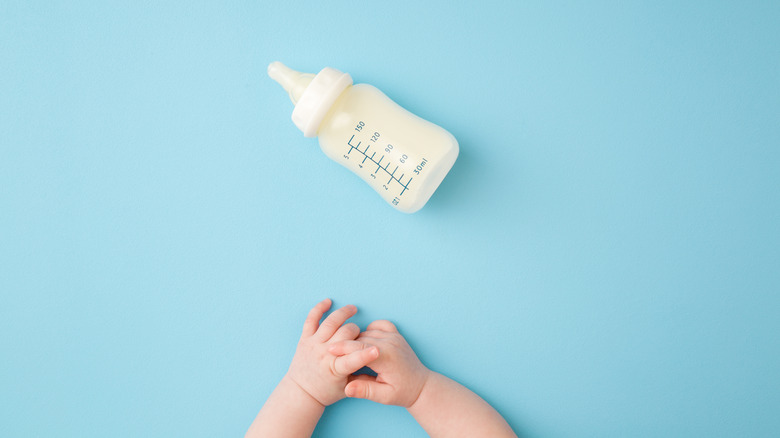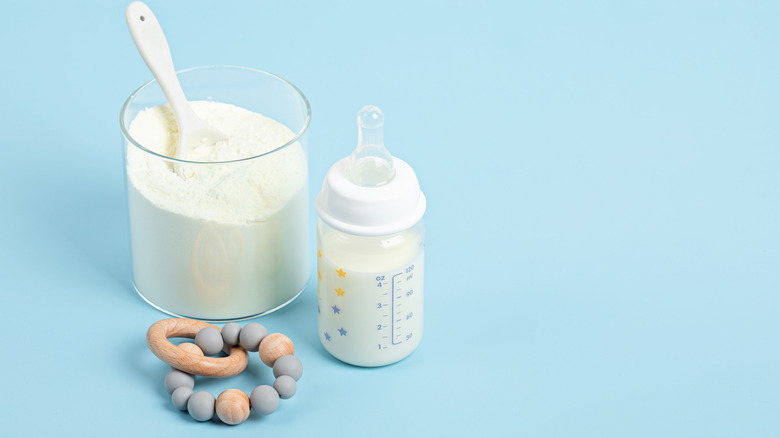Baby Formula Production Faces More Delays As Shortage Grows
Just a couple of weeks after Abbott Nutrition, a baby formula plant, reopened for business, its plant in Sturgis, Michigan has had to unexpectedly close again. Prior to the first close in February 2022, the U.S. Food and Drug Administration (FDA) found high levels of Cronobacter sakazakii bacteria which can be lethal to infants (via CNN). This unforeseen setback disrupted the supply chain as Abbott raced to remodel and rid the facility of the dangerous bacteria growing in several places.
According to Yahoo! Finance, Abbott is the lead supplier of baby formula in the U.S., and produces about 40% of the market demands. The first closure led to an all-time low in production during May as 43% of formula was out-of-stock (via Datasembly).
On Wednesday, another surprising setback hit the plant after production just restarted a short while ago. This time the weather was to blame. In a statement, Abbott explained that a severe storm passing through Sturgis overpowered the area, flooding various areas of the plant. Repercussion from this setback included halting the production of a specialty baby formula called EleCare. It's unknown how long this new delay will last, as Abbott again sprints to re-sanitize and restart production.
What does this mean for baby formula production?
Apart from Abbott Nutrition shutting down its plant in Sturgis, Michigan which will delay formula production, some Abbott baby formula is still available. Abbott explains they have ample amounts of its EleCare formula and other specialty formulas (via New York Times). These formulas, along with metabolic formulas, should be enough to last until production can restart and, according to CNN, physicians are handing them out to families.
FDA Commissioner Dr. Robert Califf points out that even during the closure, Abbott has been exceeding baby formula production compared to the prior year, and other companies have increased supply as well. "This means that the total amount of formula available, even before the Sturgis plant is back in production, exceeds the demand for formula prior to the recall," Califf further explained (via CNN).
Still, this shortage raises the question as to why Abbott has so much control over the industry? Pertaining to baby formula, international manufacturers make up a very small percentage of the formula market with imports coming from Ireland, Mexico, and the Netherlands (via FDA). 98% of the infant formula consumed is produced by the U.S., with Abbott dominating the market. Yahoo! Finance notes that poor federal trade policies may be to blame.

